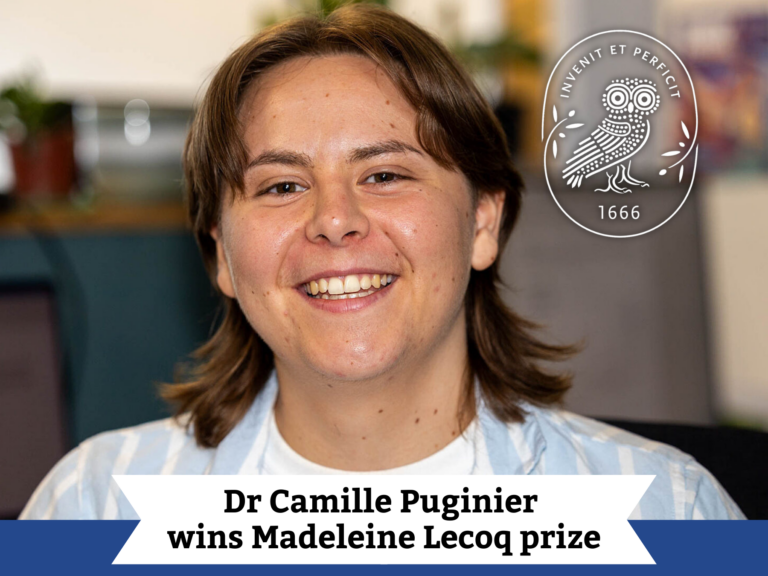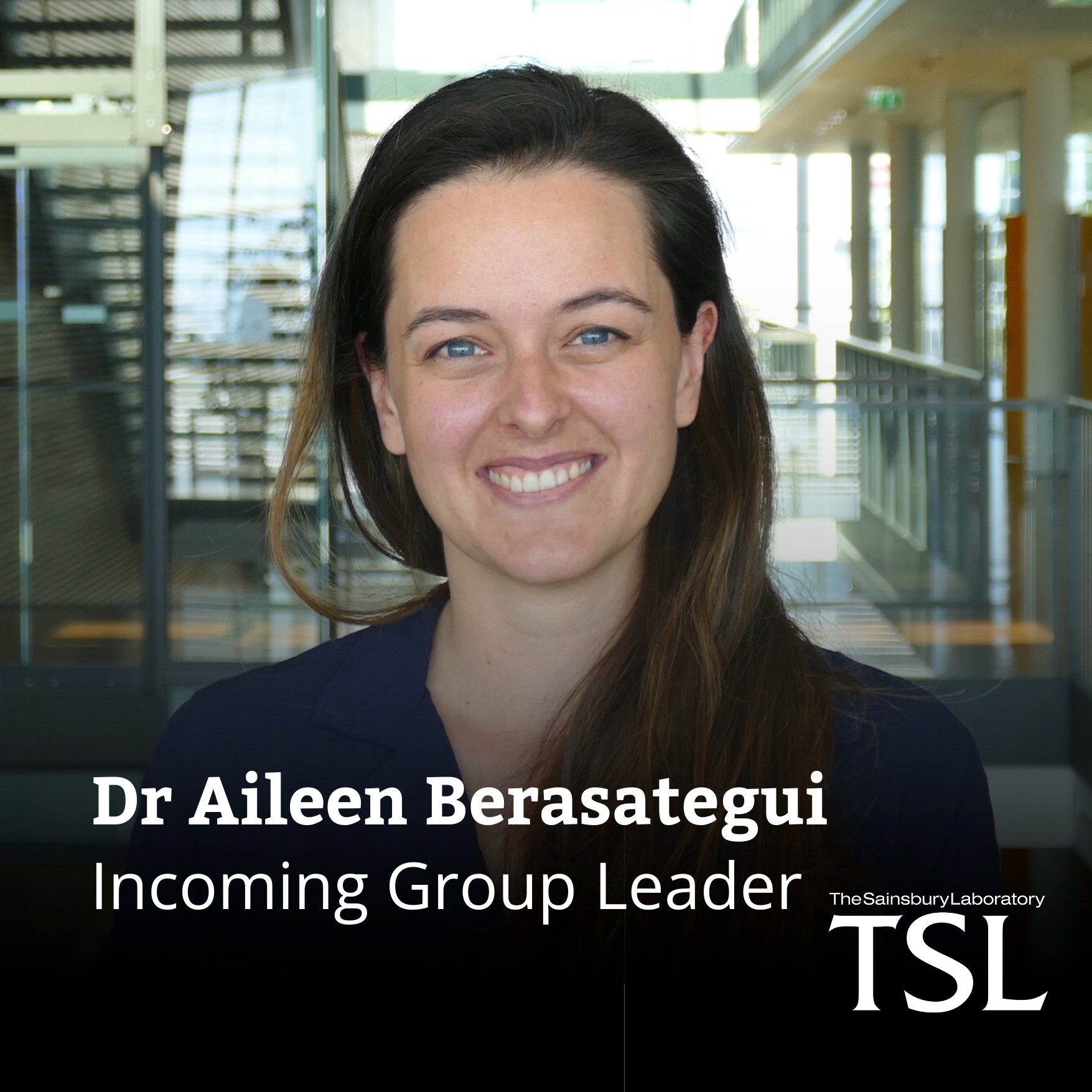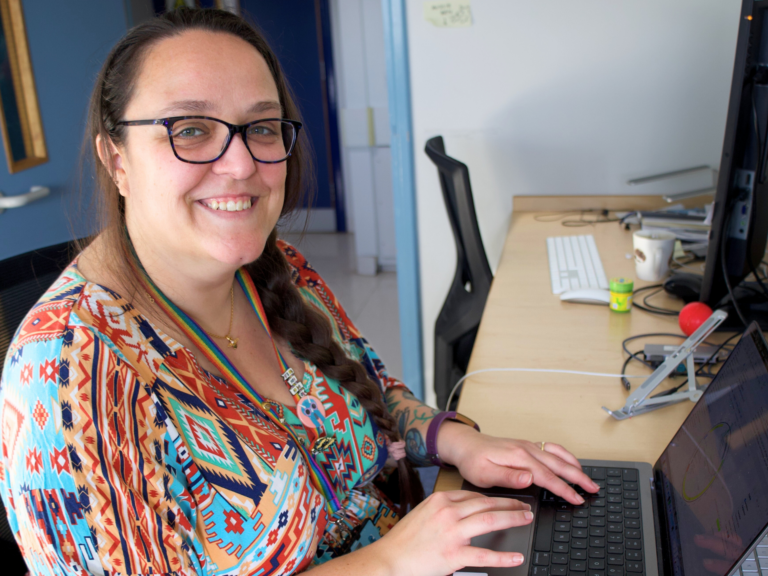The best in AI appointed at Norwich Research Park
Scientists across Norwich Research Park institutes are part of a major integrated UK research-industry programme led by The Alan Turing Institute, seeking out the best talent in AI and data science, developing bioscience leaders and supporting the UK economy.
The £600,000 Fellowship programme is funding six fellows to support life science researchers from the Earlham Institute, the John Innes Centre, Quadram Institute and The Sainsbury Laboratory. Each fellow has been paired with a project that could benefit from data science approaches.
The esteemed fellowships are funded through The Alan Turing Institute’s ‘AI for Science and Government’ Strategic Priorities Fund award and a strategic award from the Biotechnology and Biological Sciences Research Council (UKRI-BBSRC) to the Earlham Institute and John Innes Centre.
Data science uses complex machine learning algorithms to build predictive models. With the ever-increasing amount of data being produced from biological research, the projects will help drive forward AI research and innovation in the UK. Developing capability and capacity to bring together industry and academia, the fellowship programme aims for AI practices to be adopted by trades through inter-sector career paths.
Professor Neil Hall, Director of the Earlham Institute, said: “Modern life science research produces huge amounts of data at an exponential rate. The only way to make sense of this magnitude and complexity is for biologists to upskill themselves in the latest data science techniques, which makes this initiative hugely exciting.
“It’s not just about learning how to use a computer; it’s about choosing the right tools and techniques to spot patterns and generate valuable biological information. Another key part of data science is how we manage and curate our data so that it’s accessible and useful for others carrying out their own research, which will also be a critical aspect of this partnership.”
The year-long collaborative research projects, Fellows and lead Institutes include:
- Predicting the phase of the endogenous circadian clock in plants, Connor Reynolds, Earlham Institute
The circadian clock is life on earth’s internal molecular timer, orchestrating day/night cycles and seasonal changes. The project will explore the vital role of the circadian clock in developing gene expression and regulating genetic traits associated with fitness and survival to improve key crop species.
- Estimation of gene‐gene regulatory networks with recurrent neural networks and meta‐learning, Vladimir Uzun, Earlham Institute
Current gene‐gene and gene‐protein interaction networks - which are the cornerstone of fulfilling their biological function - are very poorly characterised. This project aims to apply the latest developments in machine learning to reconstruct regulatory networks across human tissues in order to predict and quantify the functional impact of genetic variation.
- Machine learning for phenotypic trait inference from microbial genomes, Odin Manuel Moron Garcia, Earlham Institute and Quadram Institute
Environments spanning from the human gut to the open oceans, hundreds of thousands of large-scale metagenomes have greatly accelerated our understanding of the genomic diversity of the prokaryotic world. This has also brought a deluge of genomic data and the pressing need to develop new data interpretation methods through phenotypic machine learning.
- Uncovering the cis-regulatory patterns that determine gene expression, James Maas, John Innes Centre
Investigating plant development by exploiting the vast amount of data at our disposal to uncover patterns in gene regulation that aims to help understand genetic behaviour during flowering time - an adaptive and agronomic trait of major importance for food security.
- In too Deep: Unravelling the links between transcriptome dynamics and phenotypic changes in Brassicas, Bethany Nichols, John Innes Centre
A major challenge in crop research is to achieve a sufficient understanding of mapping the genotype to phenotype to design crops’ behaviour to sync with their environment. This project develops genetic and phenotypic resources in Brassicas through computational approaches to identify genetic regulators that control important developmental transitions.
- Predicting Plant Immunity Triggering Protein Interactions From Sequence Data, Ruth Veevers, The Sainsbury Laboratory
Developing deep learning computational models to detect plant pathogen immunity by rendering recognisable visual patterns to identify interacting proteins that trigger plant pathogen immunity responses, with increased accuracy of over 90%.
Professor Jonathan Rowe, Programme Director of Data Science For Science at The Alan Turing Institute, said: “The amount of data being produced in biological research is only increasing - data science techniques offer the opportunity to harness and utilise this data. The appointment of these new Fellows offers an exciting opportunity to combine the Turing’s expertise in machine learning and artificial intelligence with the knowledge of the Norwich Biosciences Institutes to help solve some of the real-world problems in bioscience.”
Professor Ian Charles, Director of the Quadram Institute, said: “AI will be a key component for the future of healthcare and the prediction and prevention of disease. It is great to see these fellowships bringing further expertise in the understanding and exploitation of the complex datasets that are generated by modern bioscience”
Professor Richard Morris, Group Leader at the John Innes Centre, adds: “This initiative is a fantastic opportunity to accelerate the application of AI across the Norwich Bioscience Institutes. We were excited to see such an excellent set of projects being put forward that demonstrate the huge potential for and interest in AI at the institutes and we’re delighted to have attracted such outstanding fellows.
“The fellows will receive specialist training from their host lab, latest training in state-of-the-art AI and data science from the Turing Institute and take part in a tailored mentoring programme. We hope that this initiative will strengthen our links with the Alan Turing Institute and promote the embedding of AI into our research to tackle key biological challenges.”
Professor Dan MacLean, Head of Bioinformatics at The Sainsbury Laboratory says: “AI tools offer us the opportunity to make novel discoveries in key areas of molecular research into Global Plant Health and Food Security. This progressive cross-institute initiative will allow us to fully utilize local expertise to develop advanced AI applications alongside the Alan Turing Institute and answer significant and pressing biological questions. The outstanding fellows will work at an exciting crossroads between the AI and biological fields. We believe that their projects and efforts will greatly help to increase collaboration between the disciplines.”
Professor Nick Talbot, Executive Director of The Sainsbury Laboratory says: “AI is set to revolutionize life sciences research, enabling predictions to be made about complex biological questions, which can then be tested by experiment. This is hugely exciting for our investigations of plant immunity and crop diseases at The Sainsbury Laboratory. The Research Fellows funded by this initiative with The Alan Turing Institute will be true pioneers in applying AI to plant and microbial sciences, working across the Norwich Research Park”
About the research institutes
The Sainsbury Laboratory
The Sainsbury Laboratory is a world-leading independent research institute that specialises in plant-microbe interactions, funded by The Gatsby Charitable Foundation, The University of East Anglia and UKRI-BBSRC. Our work is focused on leading global efforts to reduce crop losses to disease.
Earlham Institute
The Earlham Institute (EI) is a world-leading research Institute focusing on the development of genomics and computational biology. EI is based within the Norwich Research Park and is one of eight institutes that receive strategic funding from Biotechnology and Biological Science Research Council (BBSRC), part of UK Research and Innovation - £5.43m in 2017/18 - as well as support from other research funders. EI operates a National Capability to promote the application of genomics and bioinformatics to advance bioscience research and innovation.
EI offers a state of the art DNA sequencing facility, unique by its operation of multiple complementary technologies for data generation. The Institute is a UK hub for innovative bioinformatics through research, analysis and interpretation of multiple, complex data sets. It hosts one of the largest computing hardware facilities dedicated to life science research in Europe. It is also


